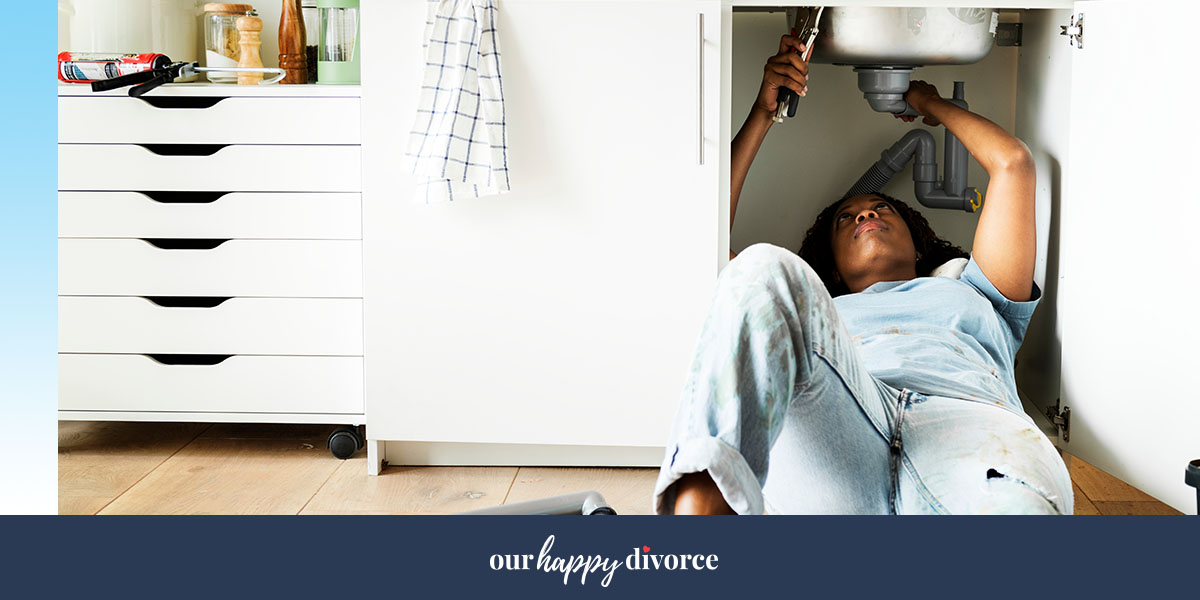
The Biggest Problem with Divorce and How To Fix It
Our Happy Divorce Tuesday, November 19, 2019
The biggest problem with divorce is how it impacts the kids. The good news is that many of the most common issues children experience as a result of divorce are completely avoidable. When parents keep their focus on co-parenting and putting the children first, it’s easier for kids to adjust to their new lifestyle.
Very Well Family shares some supportive parenting strategies that help reduce the psychological effects of divorce on kids. These effects include an increased risk of psychological, academic and social problems. Fortunately, these risks can be greatly reduced by working with your ex-partner to positively co-parent your children long after the divorce.
Helping Kids Understand
Children’s reactions to divorce vary based on their age, gender, and overall maturity. So will their understanding of what divorce really means for them. By being familiar with these different responses, you can anticipate your kids’ needs and better communicate with them.
- Young children: Going back and forth between two physical houses can be very unsettling for young children. This uncertainty and disruption to their routine can be stressful. Try to keep routines like naps, bedtime, and mealtimes the same at each house.
- School-age children: At this age, children sometimes think of divorce as their fault. They will try to understand what happened between their parents and often put themselves at the center of the conflict. Parents can minimize the effects of divorce by communicating honestly with their kids, and reassuring them that they are loved no matter what.
- Teenagers: Among this age group, resentment can be a common effect of divorce. Teenagers may resent feeling like they’re in the middle of the divorce, or they may resent having to divide their time between parents. Understanding these feelings and empathizing with your child can go a long way toward helping them move forward positively.
How to Fix the Biggest Problem in Divorce
Co-parenting is the secret to helping kids navigate divorce. At first, divorce will be a big change for kids, but over time as you and your ex-spouse work together to co-parent them, it will get easier. Here are some ways to help your children through the changes and uncertainty that divorce can bring to their lives.
- Communicate openly with your co-parent. Staying in touch with your ex about what the kids are doing, feeling and saying when they’re with you can help both be more supportive parents. Set up a weekly meeting, even if it’s just a quick chat, to share anything significant that happened while the kids were with you. This is especially helpful right before the kids move from one parent to the other. This helps parents stay in sync on discipline, communication and any significant changes in behavior.
- Work on having a happy divorce. Although the divorce has ended your marital relationship, your parenting relationship with your ex-spouse will continue for quite a while. Focusing on a happy divorce can help you put your kids first.
- Set aside quality time. Giving your children quality time can help lessen the negative effects of divorce. This undivided attention allows them the opportunity to ask questions or let you know what they’re struggling with. Consider having a tech-free day each weekend where phones and tablets are put away so you can spend time quality time together..
- Be thoughtful when introducing new romantic partners. Children can sometimes experience many of the same reactions to new partners that they did to the divorce. Depending on their age and maturity level, they may question their place in the family or feel resentment toward this new person. Carefully consider the effects of introducing a new romantic partner to your children, and wait until they are ready.
- Pick a custody schedule that works for your kids. There are many different types of shared custody schedules that give both parents equal parenting time. The best schedule for your kids depends on the ages of your children and how long they can be away from the other parent. Be flexible with these schedules, too, and adjust things if it seems like the timing isn’t working for the kids.
In almost every case, positive and open communication can really help children feel safe, secure and cared for. Often the issues that stem from divorce begin with a child feeling uncertain of their place in the family. By reassuring them that they are loved and by actively working together with your ex to put the children first in every decision and situation, many of the negative effects of divorce can be avoided.